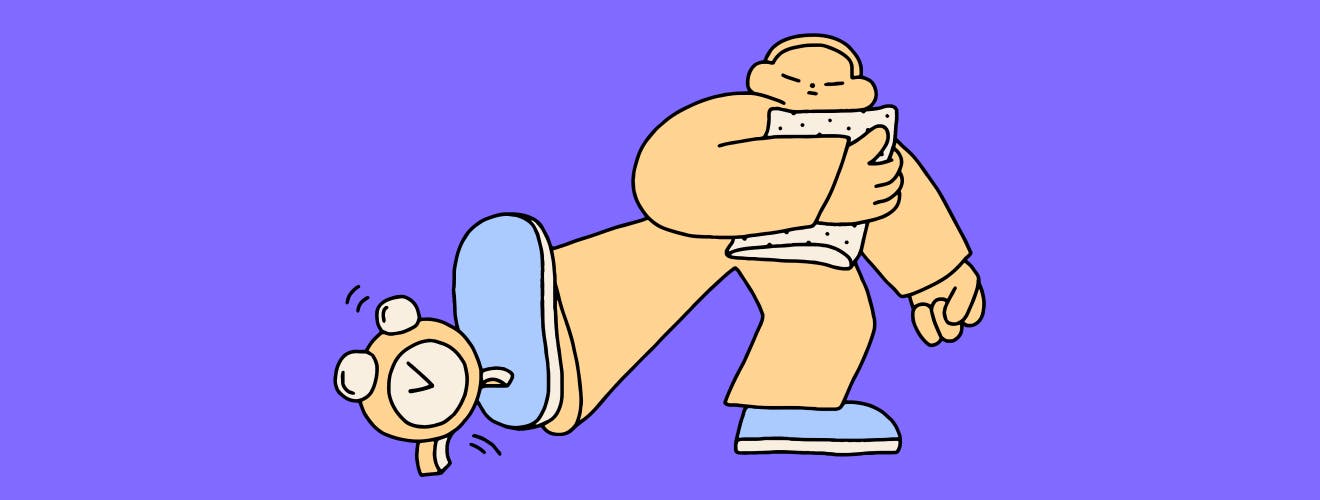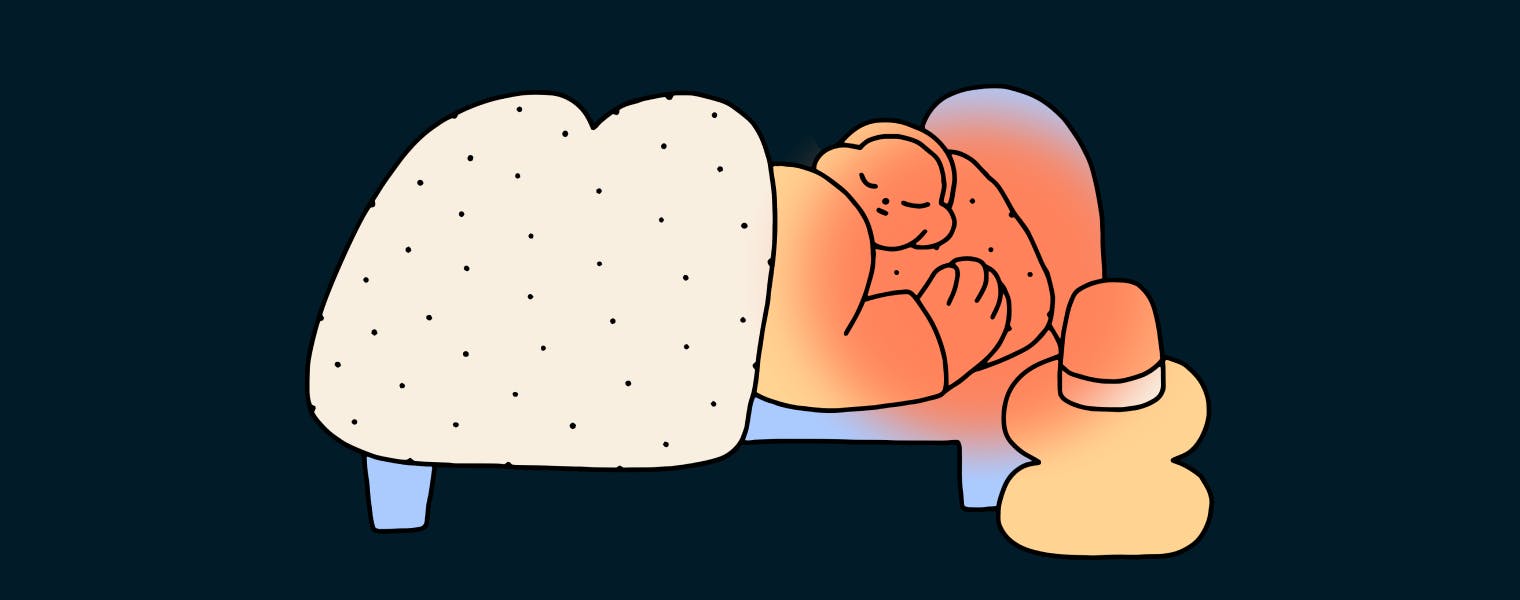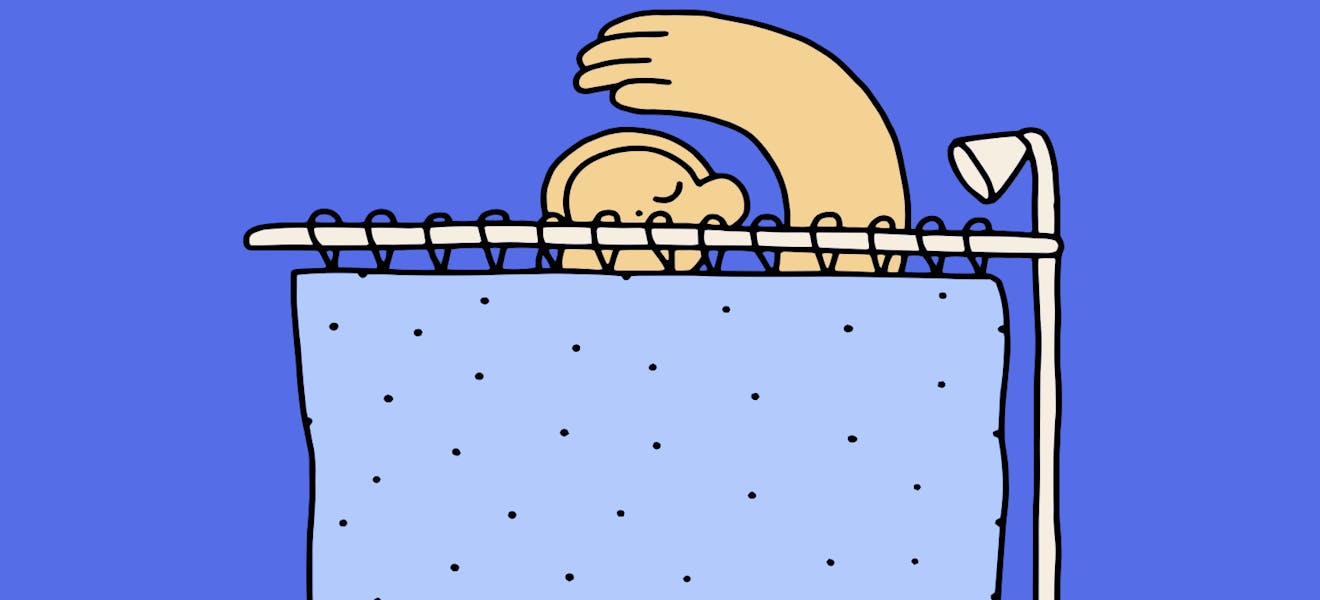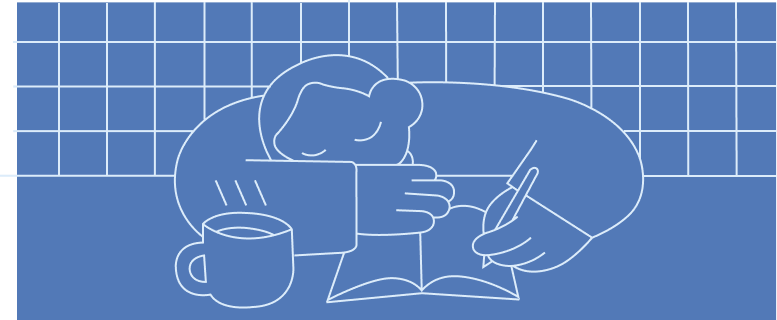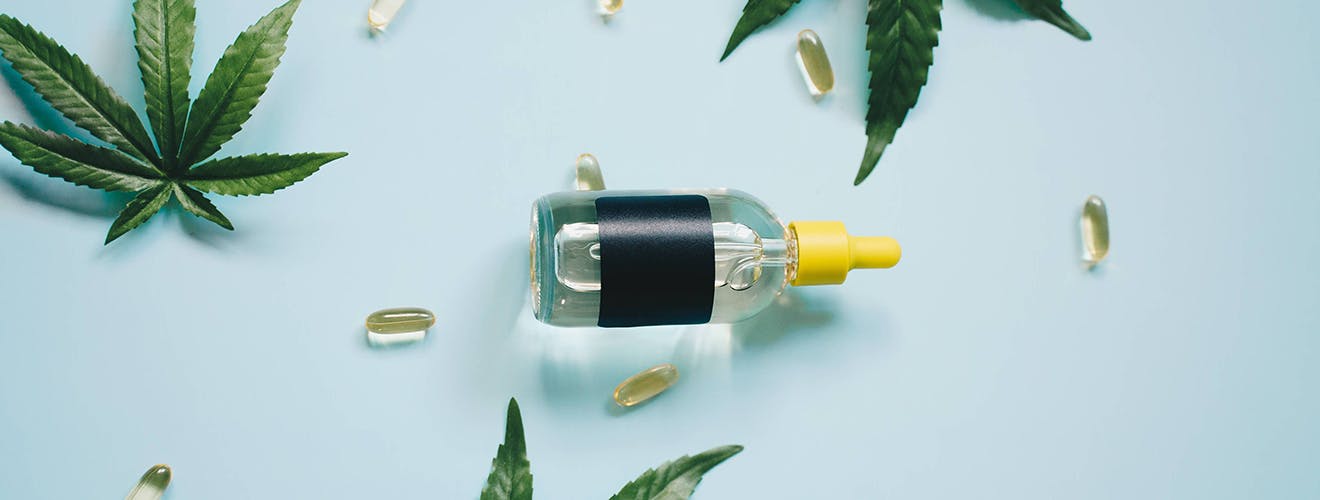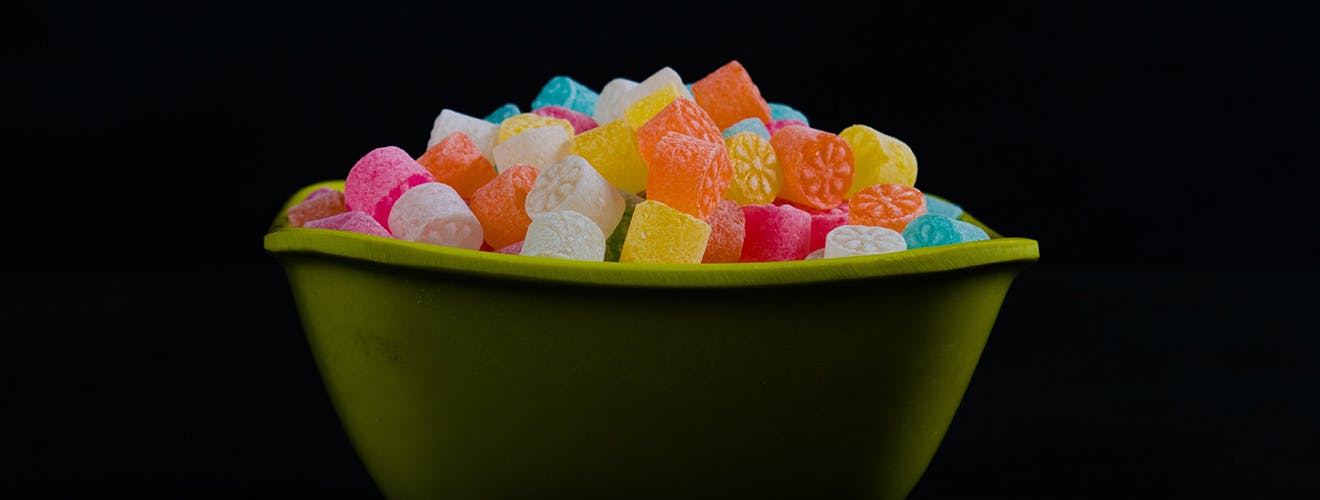How Can I Use CBD For Sleep?
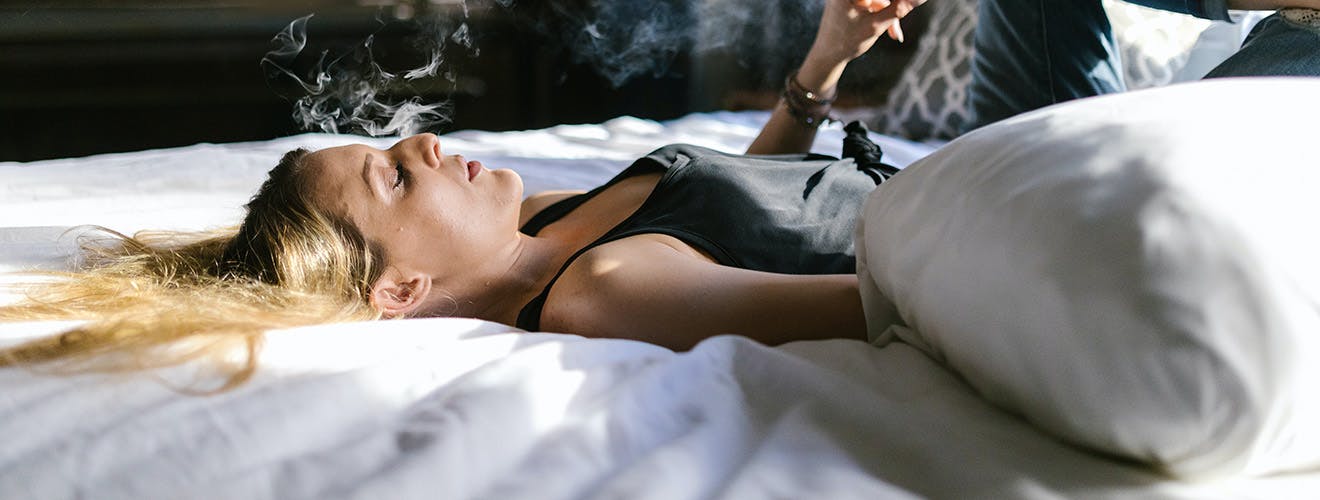
Ever thought of using CBD for sleep? CBD is a compound derived from hemp that gets touted as a miracle solution for a whole host of problems -- does it actually help for sleep though? An estimated 50 to 70 million Americans have sleep-related issues, so, seemed like a relevant problem for us to help shed some light on. Keep reading to learn about CBD can help improve your sleep quality.
What is CBD?
Cannabidiol (CBD) is a compound extracted from hemp plants. CBD works by activating a network of receptors in the body known as the endocannabinoid system. This system plays a crucial role in the central nervous system and helps regulate important functions and processes like pain, memory, sleep, immunity, stress, and mood.
Though some may worry that CBD carries psychoactive properties and effects, this reaction is more closely related to tetrahydrocannabinol, also known as THC.
What is THC?
Tetrahydrocannabinol is a psychoactive compound found in cannabis that makes you feel “high.” It binds to cannabinoids one and two receptors in brain regions that are associated with memory, emotions, pain, and sensation, among other processes.
It’s easy to get confused between THC and CBD since they have the same chemical structure. However, if you’re looking to skip the high and focus only on their sleep and other health benefits, you may want to have a closer look at their psychoactive effects.
Can CBD Help With Sleep Disorders?
CBD is often celebrated for its many health benefits, however, more research medically reviewed would help. Some people claim that CBD can target chronic pain effectively and decrease anxiety. If CBD is effective in treating these two conditions, it may be why users achieve better quality sleep with it.
Some medically reviewed early research suggests that CBD may play a role in providing relief to sleep disorders. The extent of the benefits, however, depends on the doses taken. Higher doses will naturally have a greater sedative effect while lower doses are less potent.
What Does Research Say?
While more medically reviewed research is required, it’s a good idea to review what has so far been established if you’re considering taking cannabidiol for sleep. Let’s take a look.
CBD: Effects on Patients with Insomnia
A medically reviewed research in 2018 found that patients had significantly reduced symptoms after regularly consuming the cannabis flower.
Patients were initially asked to rate their symptoms on a scale of 1 to 10. At the start of the experiment, they rated their symptoms a 6.6 on average. Towards the end of the roughly two-year experiment, they were again asked to rate their symptoms. The new average was 2.2, a drastic reduction from the 6.6 they started with.
During the study, the cannabis flower was administered with THC potency averaging 20 to 30 percent and CBD potency averaging 5.7 to 30 percent.
While it indicated that using cannabis flowers can help decrease symptoms of poor sleep caused by insomnia, the research did not specifically identify CBD as the root cause due to the flower containing several cannabinoids. More work needs to be conducted to identify the individual benefits of CBD on insomnia patients.
CBD: Effects on Patients Experiencing Anxiety and Sleep Issues
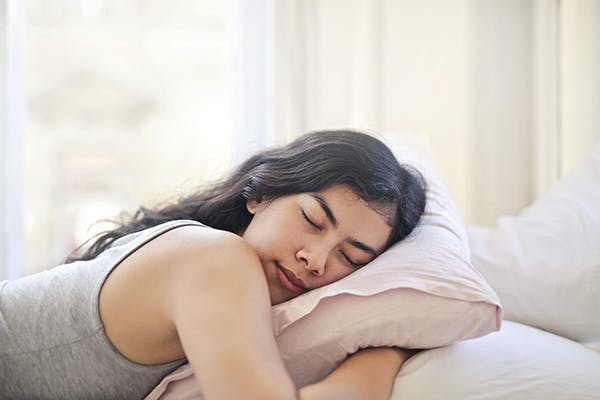
A study conducted on 72 adults showed promising results on CBD’s ability to treat anxiety and sleep problems.
The one-month experiment involved administering CBD capsules to all participants. If their primary complaint was anxiety, they were asked to take the capsule in the morning and if their chief complaint was sleep issues, they were directed to take the CBD dose in the evening.
A month into the study of anxiety and sleep, 79% of the participants' anxiety scores decreased after using CBD and their scores remained steady for the duration of the research. On the other hand, 66% of participants with sleep complaints noticed they had less trouble sleeping, which indicated that their sleep scores improved from CBD usage. However, the scores of the second group fluctuated during the study.
The results suggest that CBD can indeed help improve sleep. Of course, it would be good to have more medically reviewed research for more conclusive evidence.
CBD: Effects on Patients with Post Traumatic Stress Disorder (PTSD)
Can CBD be an effective means of treating patients with PTSD? This is what a recent study intended to discover. The results showed that participants with PTSD noticed a reduction in nightmares and trouble sleeping after using CBD. They experienced no side effects.
Studies indicate that CBD can be beneficial for reducing PTSD symptoms when used alongside psychiatric treatment. However, further research needs to take place to offer more conclusive evidence as to how CBD affects patients’ symptoms.
How Does CBD Impact Rapid Eye Movement (REM) Sleep?
The REM sleep stage is when brain activity reaches similar levels as when you’re awake. It is a dream state where patients verbalize and make aggressive movements. In some cases, it leads to REM Sleep Behavior Disorder (RBD).
Patients who suffer from RBD experience poor sleep issues, frequent nightmares, and other symptoms. The condition is more common in patients suffering from neurodegenerative diseases like Alzheimer’s and Parkinson’s. In a small study conducted on four Parkinson’s disease patients, CBD was found to help manage the symptoms of REM sleep behavior disorder.
How Can I Take CBD as a Sleep Aid?
CBD is available in different forms. This allows users more flexibility in using CBD as a sleep aid to target certain needs for better sleep.
CBD Pills
CBD pills and capsules are used for the systemic treatment of seizure disorders and digestive issues. They’re a pretty handy way to administer the drug, especially if you’re looking to reap their benefits after ingestion. That said, it may take some time before they feel the effects.
CBD Oils
Not into pills or capsules? CBD oil and tincture (sometimes described as drops and droplets) are pretty popular alternatives.
CBD liquid, or more specifically CBD oil, is administered under the tongue with a dropper. Since the oral mucosa (the soft tissue lining the oral cavity) is full of tiny capillaries, you will notice faster benefits with CBD oil compared to other CBD forms due to the quick absorption of compounds. It’s very effective at managing persistent pain in contrast to CBD’s topical form.
CBD Vapes
Smoking an e-cig of CBD or inhaling vaporized CBD oil allows you to inhale and absorb it directly from the lungs and into the bloodstream. It is a sure-fire way of experiencing lighting-quick effects.
Vaping CBD extract, however, has its fair share of potential downsides. For example, some believe that vaping damages delicate lung tissue. Since our lungs are one of the most important parts of the human body, we may not want to risk our health.
CBD Gummies
If you’re at all online, you've probably noticed some familiar faces endorsing CBD-infused gummies. The popularity of CBD gummies is in part due to the fact that they’re not just affordable, they're also tasty. Plus, you don’t have to monitor your intake. Just pop a gummy or two as recommended and you’re done! There’s no guesswork involved.
CBD Creams
Not everybody likes pills, capsules, and oils as forms of treatment. Luckily, you don’t have to miss out on the benefits CBD offers just because you have a different preference.
You can easily find CBD-infused topical creams and lotions on the market that not only focus on alleviating muscle and joint pain, but also have the potential to treat eczema, psoriasis, and other skin conditions.
It’s important to note that while creams are good for targeting specific areas, their application can be messy and they aren’t the most travel-friendly form of CBD.
What Other Health Conditions Can CBD Improve?
CBD targets a host of health conditions including, but not limited to:
- Anxiety disorders
- Inflammation
- Nausea
- Psychiatric disorders like post-traumatic stress disorder (PTSD)
- Rare and severe forms of epilepsy
- Vomiting
It may also help treat or prevent:
- Chronic pain
- Diabetes
- Depression
- High blood pressure
- Opioid addiction
Note that more medically reviewed research is necessary to conclusively prove that CBD is useful for treating these conditions.
Is CBD Legal?
In 2018, the Food and Drug Administration (FDA) approved the first CBD-based medication, Epidiolex. After giving it the green light, Epidiolex has been used for treating rare and severe forms of epilepsy.
The drug was previously listed as a controlled substance by the FDA but this changed last year when it was removed from the list, making the product easier to prescribe by doctors and more accessible for patients who need it.
Historically, the FDA has been cautious when it comes to CBD products. While Epidiolex is no longer a controlled substance, it’s far from being a non-prescription CBD product due to its potential for misuse.
When purchasing CBD products, you may want to read your local state laws concerning the legality of their use and keep a close eye on their list of ingredients. If, for example, the product contains more than 0.3 percent of THC, you may want to keep looking for other federally legal options.
CBD Safety and Side Effects
Research suggests that CBD is generally safe, however, it’s not devoid of side effects. Some people may experience changes in appetite or weight, diarrhea, and fatigue. If you are on medication for other health issues, it would be best to consult a doctor before you start incorporating CBD into your routine.
Your doctor will provide medical advice on the advantages, risks, safety and side effects that CBD may have in combination with your medication. This will help you determine whether or not you’re a good candidate for CBD.
Please note that increasing CBD in your blood can heighten your risk for side effects if consumed orally with high-fat meals. You may want to monitor your meal intake if you want to use CBD sustainably while reaping its benefits.
Conclusion
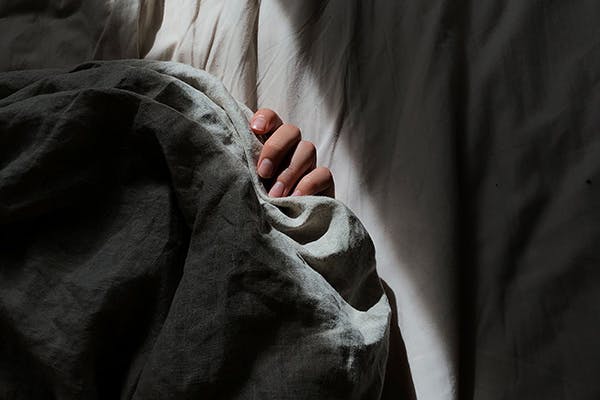
Restful sleep is key to overall health. If you face issues getting to sleep, staying asleep, or are suffering from chronic pain, you may want to consider CBD products as an alternative to prescription drugs. Evidence continues to suggest that it can help improve sleep quality and get you a good night’s rest.
If you’re looking for CBD adjacent products, look no further than Sandland Sleep. Our products are vegan, contain no GMOs, and are backed by a 30-day Risk-Free Good Sleep Guarantee. No morning-after grogginess, just good clean sleep.
Taking CBD for sleep is generally considered effective and safe. However, research in this area is limited so you may want to talk to a medical professional before you start including it in your bedtime routine.
Different doses work differently on people. According to most clinical trials conducted, anywhere between 25 mg of CBD to 1,500 mg of CBD per day can help patients sleep better. It’s recommended that you start with a low dose and increase it gradually if and when needed.
